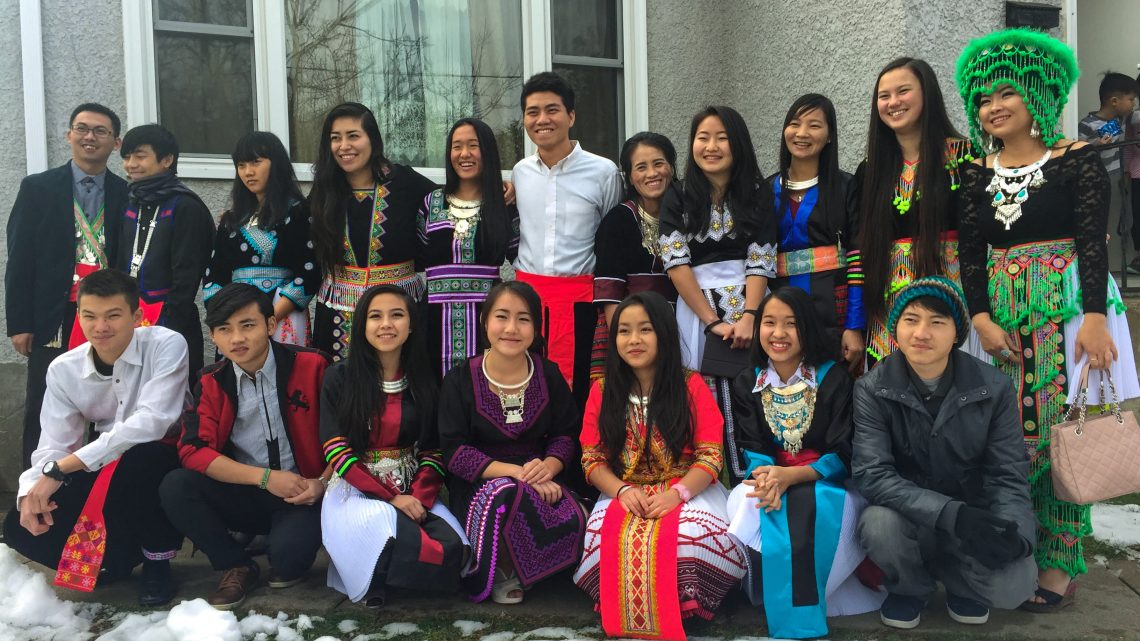Growing up in a small farming community in central Nebraska, little did I know that at age 20 I would find myself on the opposite side of the globe in Thailand, sharing the gospel with refugees from some of the most war-torn countries of the world, and learning their languages.1 Nor did I dream that one of those Southeast Asian languages (Vietnamese) would become the top language spoken in my home state, after English and Spanish.2
Working in refugee camps was an experience of a lifetime. It opened the eyes of this shy farm girl to atrocities I had never imagined, and acquainted me with some of the most delightful, gracious and resilient people I have ever met.
Have you seen my parents?
A 17-year-old refugee from Laos whom I met in the Napho refugee camp was just one. “May I tell you my story?” he asked. Delighted, I listened.
He shared how his parents, who both had good jobs in the capital city of Laos, had been captured, leaving him at the tender age of 10 to care for his 7-year-old sister. Now the man of the house, he valiantly tried to support his sister by raising fish in the bathtub (a rare possession in his culture) and selling them at the market. But he soon realized his best efforts were insufficient for the task and, finding someone to smuggle him and his sister across the Mekong River, the two children left their home and all they knew and owned, including the car in the driveway (also a rare treasure in his country).
It had been seven years since that sad day. Eager for news of their parents, he had asked everyone, especially refugees newly arriving from Laos, if they had seen his parents. No one had.
“I don’t know if my parents are dead or alive,” he told me. “I don’t know if I will ever see them again, but I am so glad communism came into my country.”
My mouth must have dropped open in astonishment because he was quick to explain. “If communism had not come to my country, I never would have learned about God.” Knowing God meant that much to him!
Thrust into our arms
You may be thinking that only a few people are called to be missionaries, and that, due to your circumstances, you could never reach the unreached. But I have good news for you! God has a way for you to participate in reaching the world with the gospel. God has brought thousands of His precious children, many yet unreached by the message of His love, right into communities near you.
Every state has refugees, but Minnesota has nearly half a million foreign-born residents and is home to the largest Somali population in the United States, and the second-largest Hmong population.3 These may seem like random facts, but in reality, they are part of God’s master plan of salvation.
In her book Evangelism, Ellen G. White wrote, “If we were quick in discerning the opening providences of God, we should be able to see, in the multiplied opportunities to reach many foreigners in America, a divinely appointed means of rapidly extending the third angel’s message into all the nations of earth. God in His providence has brought men to our very doors and thrust them, as it were, into our arms, that they might learn the truth, and be qualified to do a work we could not do in getting the light before men of other tongues.”4
- Laos (from which the Lao, Hmong, Mien, and Lahu refugees come) is the most bombed country in the world.
- “Top 15 Non-English Languages by State.” https://www.cms.gov/CCIIO/Resources/Regulations-and-Guidance/Downloads/Appendix-A-Top-15.pdf
- Elliot, Megan. “10 States Where the Number of Immigrants Is Growing Fastest.” Culture Cheat Sheet. www.cheatsheet.com/culture/states-where-the-number-of-immigrants-growing-fastest.html/?a=viewall
- White, Ellen G. Evangelism. p. 570.
Six Ways to Reach out to Refugees and International Guests
Visit a refugee congregation near you. There are now 152 refugee congregations scattered across the North American Division. Ask your local conference about the one nearest you, and drop by for a visit. Ask them to teach you a greeting or two in their language.
Help a refugee resettlement (reception and placement) agency near you in welcoming incoming refugees. Google “refugee resettlement agency” in your city for contact information. Now, especially, with the recent funding cuts, many are looking for creative ways to continue to care for refugees.
Volunteer for the Literacy Council, or start your own ESL or citizenship class. Your knowledge of English is one of the easiest things to share with refugees and immigrants. You don’t have to be a trained teacher—just share what you know in a friendly way.
Help refugee children with their homework/education. One of the areas in which refugees and immigrant parents feel most helpless is finding tutoring and good role models for their children. Refugee children are very motivated to learn and some have been saved from gang involvement this way.1
Invite refugees to share their experience with a small group of friends from your church. One of the things refugees and international guests crave most is friendships with Americans. Asking them to spend time with you and your friends will be heart-warming for them, and eye-opening for you.
Pray that God will lead you to a refugee/asylee/international student or guest who you can welcome. These “random” divine appointments are often the best! “All heaven is in activity, and the angels of God are waiting to cooperate with those who will devise plans by which the souls for whom Christ died may hear the glad tidings of salvation.”2
- http://www.educatingrefugees.org
- Review & Herald. May 13, 1902, Art. A, par. 15.
—Terri Saelee coordinates Adventist Refugee & Immigrant Ministries for the North American Division. Visit refugeeministries.org for more information..










